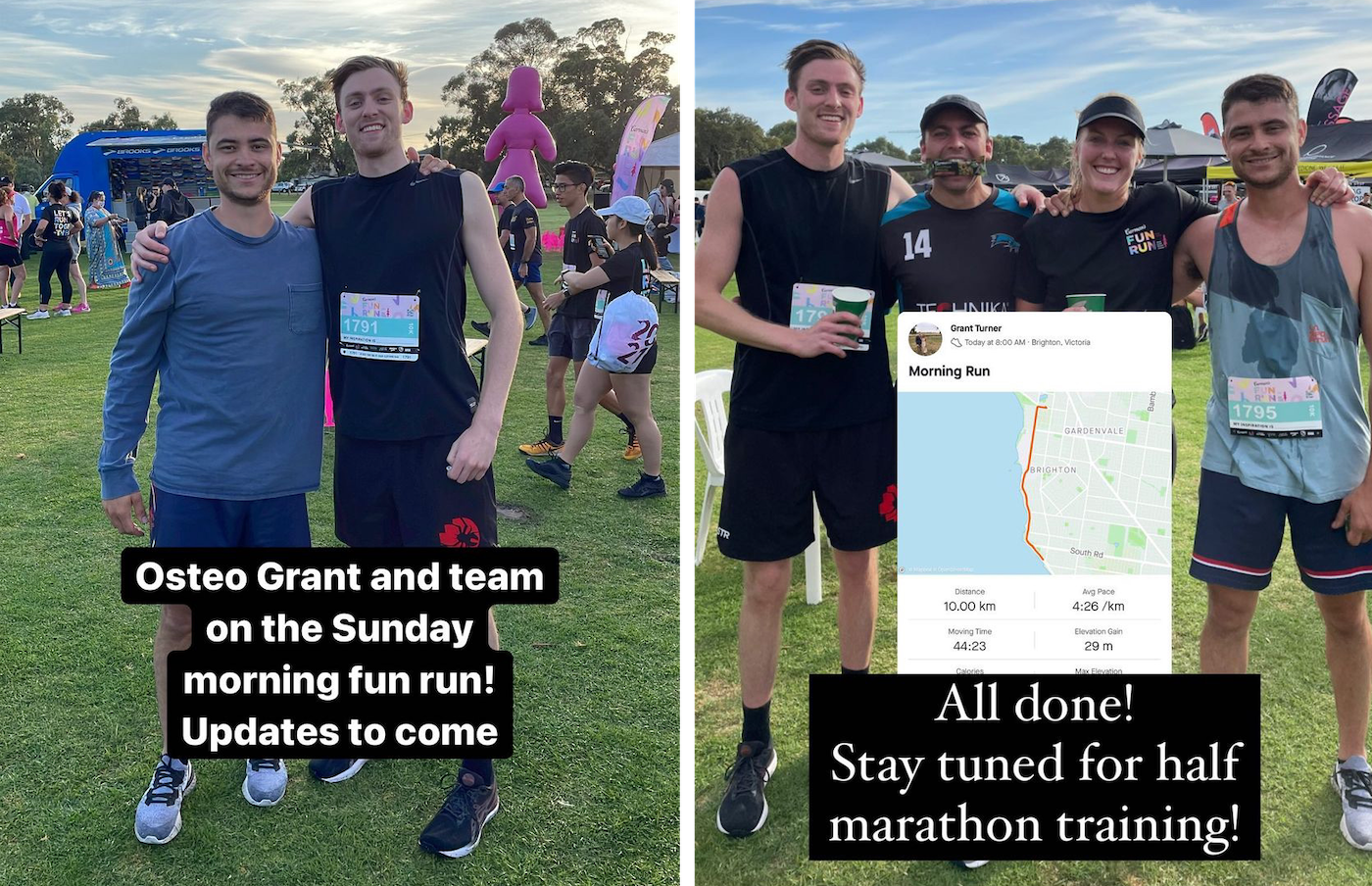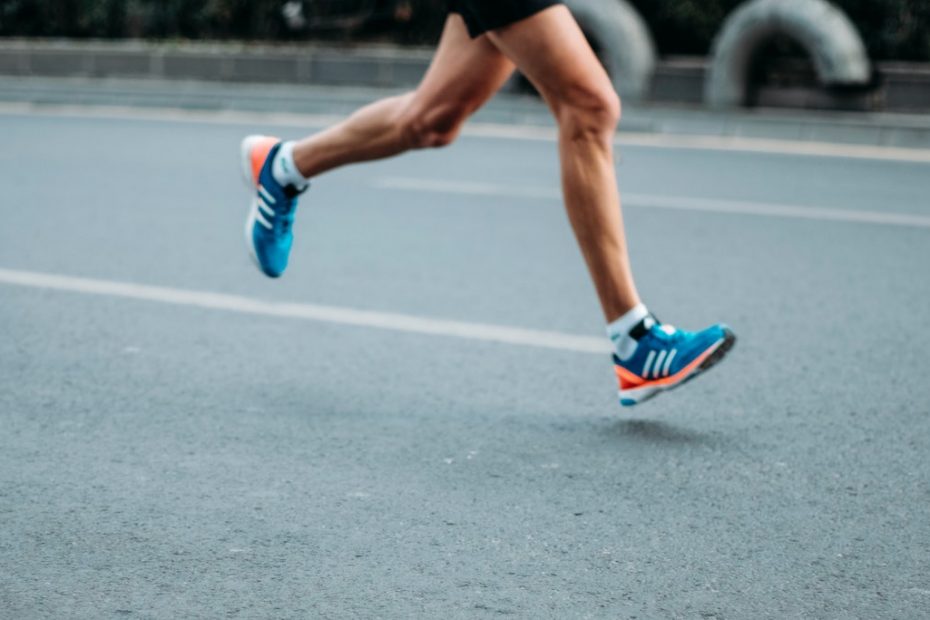Have you set yourself a running aspiration this year? Don’t let your post-run recovery or lack of stop you from achieving your running goal.
Our osteopath, Grant Turner, has set his sights on a half marathon for 2022 and his training has just begun. Regular morning runs and participating in a 10km fun run has put him in a good position, but it’s the work behind the scenes that will largely determine whether he accomplishes his goal.

Whether you’re planning on completing a marathon or just running for fun, avoiding injuries and the dreaded after-run soreness is key to keeping your goal on track.
Optimal post-run recovery will help you to continue to perform and show up to your runs without feeling uncomfortable and fatigued.
Here we share our top tips to assist you with your post-run recovery.
1. Take the time to cool down
Before your crumple on the floor or head out for breakie, take the time to cool down properly for 5-20 mins.
A few static stretches and low-intensity exercise such as a short walk can help to encourage blood flow and remove lactic acid that has built up. This will relieve tightness and soreness in your muscles and prepare you for your next run.
2. Refuel correctly
Optimal nutrition helps your body recover from your run, providing it with the nutrients needed to replenish energy stores, repair muscles and tissue, fight oxidative stress and support your immune system.
Key nutrients to consider within the first-hour post-run:
- Complex carbohydrates
- Quality protein
- Water and electrolytes
3. Roll the tightness out
Grab a cork roller or a ball to roll out the tightness and muscle soreness and encourage soft tissue recovery. Spending a few minutes in areas such as your calves, quads and hamstrings as well as your lower back and hips can be beneficial before and after your run.
Not only will this help relieve some of the soreness and stiffness in your muscles, but it can also work out the kinks and knots that have built up over time.
You can find a range of stretch and tone products our osteopaths love here over at Whole Store.
4. Use magnesium topically
Magnesium helps to relax your muscles and prevent them from cramping or unpleasant spasms. Applying magnesium topically through oil spray or in a bath will help to reduce inflammation and replenish your red blood cells.
Take a look at the magnesium spray we use in our clinic.
5. Try an ice bath
Ice baths are all the rage right now and for post-run recovery, they have many benefits. An ice bath can help to reduce inflammation in your muscles and tissues. It helps promote blood flow throughout your body and may lessen muscle damage experienced during your training.
6. Consider a remedial massage
If you are planning a run that is going to test your endurance limits like entering a running event, consider booking a redial massage a day or two after.
Remedial massage can help to improve circulation, relieve tightness as well as address the delayed onset muscle soreness. It’s going to improve your circulation and blood flow to damaged tissues as well as help to increase your range of motion.
You can book a remedial massage at our Ocean Grove or Geelong West clinics.
7. Rest up
Resting well after and between runs is going to maximise your muscle recovery and enable your body to repair and rebuild. Aim to get quality sleep every night of approximately 8 hours uninterrupted. Creating a bedtime routine, switching off your devices and ensuring your environment is optimal for sleeping is important.
If your sleep is compromised in some way, don’t discount restorative naps of 15-20 minutes to enhance your recovery.
8. Modify your training schedule
Finally, if you’re struggling to pull up from your run optimally it might be time to modify your training schedule. This may include scaling back the intensity, alternating the distance from long runs to short sprints or adding in one more rest day.
Signs you may not be recovering well from your current run are delayed fatigue, soreness or pain, recurrent injuries, decreased performance, reduced appetite, irritability or weight loss.
Chatting to a run coach or your health practitioner can help ensure you’re not overtraining and setting yourself up for failure.
Osteopath Grant Turner is available for osteo and remedial massage appointments at Geelong West and Ocean Grove. As a keen runner, Grant understands the effects of running on the body, how to best support your body and how to structure a training schedule to avoid injury. You can book an appointment with Grant here or call our clinic on 5200 1044.
